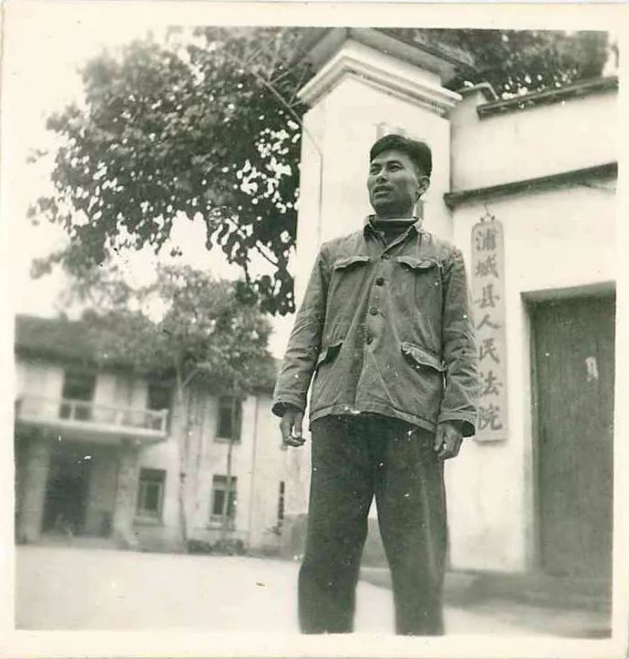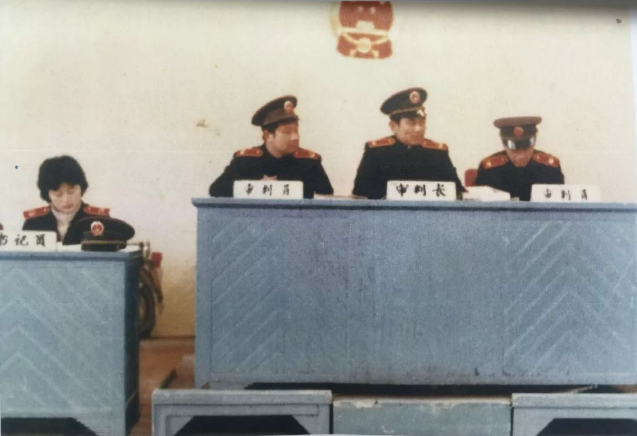Advanced court worker remembers 40 years of reform and opening-up
 |
|
Ji Dehong in front of the original Pucheng County People’s Court [Photo/ Fujian High People’s Court] |
 |
|
Ji Dehong hears a case as a chief judge in the court. [Photo/ Fujian High People’s Court] |
“The original office site of the court was moved and the institutional setup was improved. The internal institutions developed from the previous original handling of civil cases and others involving criminal groups to the current civil, criminal, administrative, ecological, case filing, execution, trial and supervision departments and people's courts,” said a witness of the reform and opening-up.
Ji Dehong, selected as an advanced court worker in China’s Fujian province in 1983, told his story about the development of Chinese courts during forty years of reform and opening-up.
On Oct 15 of the year 1972, Pucheng County People’s Court was officially inaugurated and Ji Dehong started to work in the office of the court in the same year. “At that time, all the materials were copied by hand. Due to a shortage of stationery, every pin and paper clip had to be used many times. And the envelopes were turned over for a second use,” Ji said.
After the Third Plenary Session of the 11th Central Committee of the Chinese Communist Party, the court started to correct miscarriages of justice and Ji also worked in that area.
“During that time, the work was very busy and there were no holidays and festivals. In case of urgent tasks or special cases, we couldn’t take rest for a month or twenty days. All members of the court, from the head to the general cadres, were involved in handling cases,” he said.
In 1988, administrative tribunals were added to courts at all levels. On July 24 of that year, Ji was appointed chief judge of the administrative court by the standing committee of the county people's congress.
“I went to the county land administration bureau, water conservancy bureau, tax bureau and health bureau to explain the administrative procedure law in order to make administrative departments know the way to exercise their functions and powers according to law,” Ji continued.
At that time, the officials in the basic court system didn’t have high professional skills. In Pucheng County People’s Court, no one had a professional legal background. In order to improve the judicial ability of officials, the Supreme People’s Court opened a national amateur college for training cadres in 1985.
“In that year, more than 20 officials registered for examination. More than 50 years old, I was one of them,” Ji said.
As time passed by, and under the wave of reform and opening-up, the court's team became more specialized and professional. And the new judges were selected from the candidates who had passed the judicial examination at the national level.







